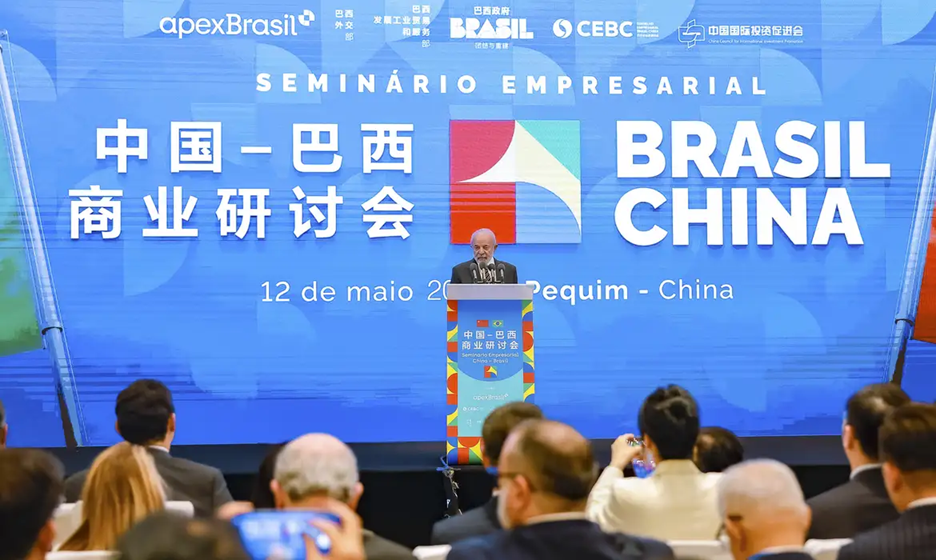
On May 12th Beijing time, Brazilian President Luiz Inácio Lula da Silva, who is on a state visit to China, attended the closing ceremony of the "China-Brazil Business Seminar" and delivered a speech. He emphasized that the cooperation between China and Brazil is "inescapable" and "indestructible," highly praising China's performance in international trade and calling China a model for global trade.
During the forum, Chinese companies announced investments in Brazil totaling over 27 billion reais, covering various key sectors including aviation fuel, new energy vehicles, semiconductors, express delivery services, and food chains. This is Lula's second visit to China since taking office for the third time as president, demonstrating the Brazilian government's emphasis on deepening cooperation with China.
Key investment projects are summarized as follows:
Meituan will enter the Brazilian food delivery market under the brand "Keeta," investing around 5.6 billion reais. They plan to establish a customer service center in northeastern Brazil, creating 3,000 to 4,000 direct jobs and driving 100,000 indirect job opportunities.
Dairy Queen will invest 3.2 billion reais in Brazil for factory construction, store expansion, and sourcing fruit ingredients from Brazil. By 2030, they aim to create 25,000 job positions.
Semiconductor company Jiangbolong, through its subsidiary Zilia, will add 650 million reais to factories in São Paulo and Manaus to expand the production capacity of memory chips and semiconductor components.
Great Wall Motors plans to invest 6 billion reais in Brazil, expand local factories, and export cars to South America and Mexico.
GAC Group is set to launch its electric vehicle models in the Brazilian market.
Horizon Technology plans to invest up to 5 billion reais to build a sustainable aviation fuel production and green hydrogen industrial park.
China General Nuclear Group will invest 3 billion reais in Piauí State, Brazil, to build a renewable energy hub, expecting to create over 5,000 construction job positions.
Didi Chuxing plans to expand its services in Brazil, including the expansion of food delivery services, and build around 10,000 electric vehicle charging stations to promote the electrification of transport in Brazil.
Brazil's Minister of Agriculture, Carlos Favaro, also delivered a speech in Beijing, stating that Brazil is actively seeking to deepen trade and friendship relations with China. He pointed out that amidst global trade instability, China-Brazil cooperation has brought mutual benefits to both countries. He also criticized recent U.S. trade protectionist measures, believing they have seriously impacted the global economy and brought uncertainty.
